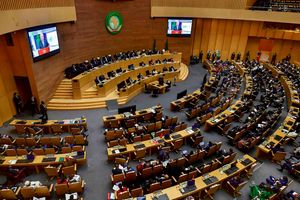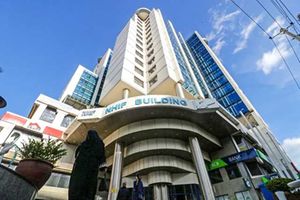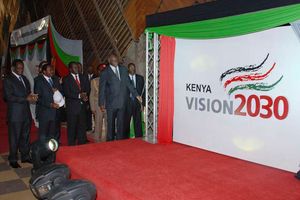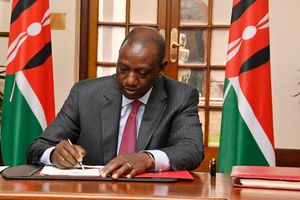
The effect of maintaining high interest rates is sluggish private sector activity.
When I started working for IFC, the private sector arm of the World Bank, it took me a while to get used to the words going on mission, in reference to work trips. I would be going to Arusha, Meru, Mwanza or Githunguri, but the rule seemed to be that if the travel required overnight stay, then I was away on mission.
It reminded me though how, when I was growing up, government officers would be said to be away on safari. Not long ago, I read a book, The Men Who Ruled Kenya. Using field notes, diaries and official archives, a former colonial district commissioner details the lives and times of DCs and DOs during colonial times. It turns out that a government officer being on safari was colonial heritage. District Officers and Commissioners were expected not confine themselves to a headquarter, but to conduct regular safaris, inspecting what the colonized were up to.
The tourism sector has adopted a usage rather similar to the colonial connotation. Foreign tourists come in to the country to go on safari to see what the natives, both wild and human, are up to.
Going on mission sounds serious and purposeful. At the end of the mission there will be a mission report or aide memoire. And an IMF mission has been in town for a couple of weeks. It perhaps explains why the distance between rhetoric and action on public finance and economic management has widened in recent months.
About four weeks ago, the president indicated publicly that he is aiming for a balanced budget within three years. That pronouncement was followed by a national treasury circular to statutory bodies asking them to limit their 2024/25 budget proposals to 70 per cent of their current budgets.
It may appear, therefore, that the long-awaited fiscal consolidation is underway. Except when you look at the budget policy statement (BPS). The BPS is the legal foundation of the finance bill and printed estimates, that will come later. It contains the overall expenditure, revenue and budget deficit proposals for the coming year, as well as the medium-term. This latter aspect is referred to as the medium-term expenditure framework.
Passed by the national assembly last month, the BPS increases 2024/25 expenditures by more than Sh285.3 billion. This brings the expenditure increases for the two years the Kenya Kwanza administration has been in office, to Sh967 billion.
To finance this rapid growth in expenditure the regime proposes to increase taxes by Sh367 billion for the financial year starting this July. If they succeed – which they likely will, given a door mat national assembly, taxation will have increased by Sh1.1 trillion in two years. That is equivalent to Sh90,000 per person, for the 12 million Kenyans aged 25-64 years.
The budget deficit in the BPS is Sh753.2 billion for the next financial year. That on top of the Sh832.4 billion in the current financial year. This trajectory is the opposite of a balanced budget. The pronouncements and circulars are window dressing. The actual action is in the BPS.
Parliamentarians and anti-debt activists often complain that they cannot tell what some of the loans that the government procures are for. But parliamentarians should know better. Loans procured for budget support mean the monies are comingled with the tax revenues in the consolidated fund. That is why it is called budget support. It funds everything, including tea and travel.
Actions, more than pronouncements are what matter in economic management. When the NARC administration came to power, politics regained some honour. It was no longer fashionable to deny facts. The economy was doing badly and it was the government’s role to fix it. Corruption ceased being official, albeit unwritten, government policy. Politicians could no longer go to State House for handouts every week.
The NARC administration did not go around promising a balanced budget. They just did it, achieving a budget surplus of Sh1 billion in 2004. At first, development partners were confused, since here was a government of a broke country that was not borrowing. Yet everywhere roads were being repaired and new ones built. Where was the money coming from?
Having faith that their money was not being looted through corruption, more citizens begun paying tax. Government itself was less wasteful. And when key ministers became embroiled in the Anglo Leasing scandal, they had to resign. The current leadership would do well to emulate such actions.
One area where actions are matching rhetoric is in monetary policy. Inflation was 5.7 per cent in March, primarily on the back of favorable food prices. The easing of the exchange rate, and onset of the long rains will lower inflation further this April. Still last week the Monetary Policy Committee chose to maintain the Central Bank Rate at 13 per cent, with the hope of bringing inflation down to 5 per cent, which is the mid-point of the target range of inflation.
No doubt the IMF will see it as a positive development. And it is. Still most economists consider the target inflation range too high. Why should it be 5 per cent plus or minus two? Why not 2 per cent plus or minus one? Unlike on the expenditure side, the CBK is doing what it promises to do. But the effect of maintaining high interest rates is sluggish private sector activity. The financial sector will continue to report high profits, while factories are closing.
This has a redistributive effect in favour of financial assets. Without increases in production we shall continue to import more than we export, maintaining pressure on the exchange rate. Importantly, the economy, even when it achieves modest growth, will not create sufficient jobs.
@NdirituMuriithi is an economist













